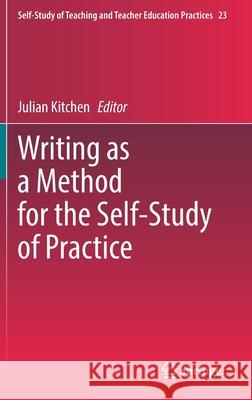Writing as a Method for the Self-Study of Practice » książka
topmenu
Writing as a Method for the Self-Study of Practice
ISBN-13: 9789811624971 / Angielski / Twarda / 2021 / 242 str.
Writing as a Method for the Self-Study of Practice
ISBN-13: 9789811624971 / Angielski / Twarda / 2021 / 242 str.
cena 724,58
(netto: 690,08 VAT: 5%)
Najniższa cena z 30 dni: 693,97
(netto: 690,08 VAT: 5%)
Najniższa cena z 30 dni: 693,97
Termin realizacji zamówienia:
ok. 16-18 dni roboczych.
ok. 16-18 dni roboczych.
Darmowa dostawa!
Kategorie:
Kategorie BISAC:
Wydawca:
Springer
Seria wydawnicza:
Język:
Angielski
ISBN-13:
9789811624971
Rok wydania:
2021
Wydanie:
2021
Numer serii:
000419699
Ilość stron:
242
Waga:
0.54 kg
Wymiary:
23.39 x 15.6 x 1.6
Oprawa:
Twarda
Wolumenów:
01
Dodatkowe informacje:
Wydanie ilustrowane











